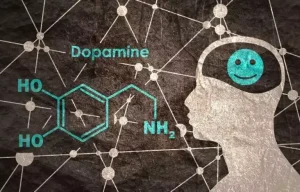
As a result of self-centeredness and denial, alcoholics can behave in manipulative ways. Like narcissists, they may threaten harm to themselves or others if they don’t get what they want. They may pretend to be nice for a short while to get narcissism and alcoholism other people to leave them alone. Even if their behaviors hurt others, alcoholics do what they feel they need to continue drinking. Furthermore, alcoholic narcissist has an exceptionally difficult time admitting that they have a problem.
- For substance-related behaviors, this is most evident in substance use to cope with negative affect due to lack of others’ admiration and feelings of shame related to narcissistic vulnerability.
- Someone who’s narcissistic might be self-absorbed and have an inflated sense of self-importance.
- While grandiose narcissists possess high self-esteem, vulnerable narcissists tend to have low self-esteem.
- Coping with an alcoholic narcissist can be challenging, and setting clear boundaries to protect yourself is important.
How does it link with addiction?
The purpose of these groups is to provide a safe and supportive environment where you can share your struggles and receive encouragement and guidance from others. People with Alcohol Use Disorder (AUD), also known as alcoholism, can exhibit self-absorption and a desire for admiration, similar to those with Narcissistic Personality Disorder (NPD). However, there are distinctions between the two that are crucial to recognize.

Overlapping treatment options

Yes, it is common for individuals with narcissistic personality disorder to struggle with substance abuse. This is because they may use drugs or alcohol to cope with feelings of inadequacy or enhance their sense of superiority. This highlights further parallels between social anxiety and vulnerable narcissism, which display substantial conceptual and empirical overlaps (54). Recent evidence suggests that socially anxious individuals who develop https://ecosoberhouse.com/ problematic or addictive drinking patterns may belong to a highly impulsive subtype of social anxiety disorder (55, 56). Future research on narcissism and addiction could integrate these findings to elucidate more fine-grained predictors of problematic or addictive substance use in narcissism. Chronic alcohol abuse, coupled with narcissistic personality disorder (NPD), can severely affect an individual’s physical and mental health.
The Effects of Alcoholism on Narcissism
Instead, they take on personality traits that may not be their own to make themselves look more powerful or interesting. Clinicians work together to ensure all departments provide cohesive and consistent treatment for clients struggling with their surroundings. Therapy is one of the most effective forms of treatment for clients with NPD and co-occurring AUD. Pathways Recovery Center’s residential dual-diagnosis treatment provides clients the support they need to grow, heal, and thrive.
- For a narcissist, it can be challenging to maintain a genuine connection with others, as they tend to have a strong need for attention and a sense of entitlement.
- The authors of the review also suggest that people with narcissism may use drugs to achieve a state of superiority above others while also lessening feelings of inferiority, which fluctuating self-esteem can cause.
While diagnosis and treatment can be challenging, studies have shown that the successful treatment of a mental illness can lead to alcohol recovery in two out of every three cases. For this reason, mental health professionals will routinely screen for substance abuse when diagnosing a personality disorder or screen for behavioral concerns when a person has a substance abuse disorder. Both NPD and AUD are mental health conditions classified in the Diagnostic and Statistical Manual of Mental Disorders, 5th Edition (DSM-5). According to a 2019 study in Behavioral Medicine, 40.6% of NPD have substance abuse problems. On the flip side, grandiose and vulnerable NPD were both independent factors for alcohol abuse, concluded a 2019 study in the Journal of American College Health. Narcissistic personality disorder (NPD) and alcohol use disorder (AUD) are closely linked.
Alcoholism Treatment – Pathways Recovery Center in Azusa, CA
Preventing the development and escalation of narcissistic personality disorder (NPD) and alcohol use disorder (AUD) involves a combination of early intervention, education, and healthy coping strategies. By adopting these measures, you can reduce the risk of these conditions and improve their overall well-being. Narcissism is a personality trait where people may feel a need for admiration, show a lack of empathy, or be self-involved. It is typical for people to display occasional narcissistic traits, but a pattern of narcissism could be part of narcissistic personality disorder (NPD), a mental health condition.

- You can also find narcissist abuse support groups, both online or in-person, through organizations like Help Within Reach.
- These include fluctuating or low self-esteem, the devaluing of others, and a sense of invulnerability.
- Drinking can also numb or mask the shame they feel, impairing their ability to empathize with others or form meaningful connections.
- Codependent individuals may develop a strong sense of responsibility for the alcoholic narcissist’s well-being, feeling compelled to fix or rescue them from their destructive behaviors.
- The codependent partner may prioritize the needs of the alcoholic narcissist over their own, sacrificing their well-being in the process.
- Like narcissists, they may threaten harm to themselves or others if they don’t get what they want.
- This article looks at the links between narcissism and addiction and explains why people with narcissism may be more likely than other people to engage in addictive behaviors.
- Your therapist can work with you to identify effective ways to cope with difficult emotions, such as mindfulness practices, exercise, or creative outlets.
- Before we address the complex relationship between alcoholism and narcissism, we need to understand what narcissism is.
- They will support you through the journey of overcoming addiction and dealing with the underlying personality issues, which will ultimately pave the way for a healthier, happier life.
- For those already affected, these approaches can support long-term recovery and improve quality of life.
- Individuals with NPD often have a fragile sense of self-esteem, which may be either very high (grandiose narcissists) or very low (vulnerable narcissists).
